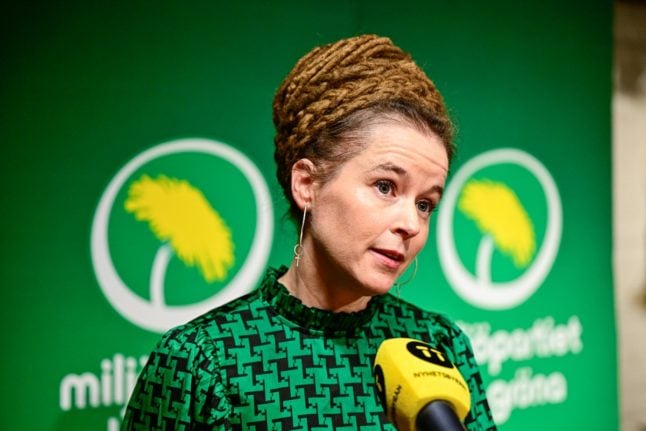Sweden’s Social Democrat-led opposition has been turning up their rhetoric in pushing the government for tougher action on the country’s rapidly rising inflation and cost of living.
Inflation now stands at 12 percent according to the Consumer Price Index (and 9.4 percent without taking the effect of fluctuating mortgage rates into account – you hear both figures in the political debate, but the latter is what the Central Bank – the Riksbank – uses).
Food is 21 percent more expensive than this time last year, which is the biggest yearly rise since the start of the 1950s, eclipsing even the high-inflation years of the 1970s.
The Social Democrats are now calling for parliament to debate the high cost of living.
“The government appears not to have realised the scope of the crisis and is not acting, so we have to discuss it in parliament,” Swedish news agency TT quoted the Social Democrats’ finance spokesperson, Mikael Damberg, as saying just the other day.
So what is the government doing?
The latest move by Finance Minister Elisabeth Svantesson is to call Sweden’s food giants to a meeting.
The Swedish grocery market is dominated by three main players: Ica, Axfood and Coop, with Ica owning around 50 percent of the market. This means that it’s easier for them to raise prices than it would be in a market with more competition from other companies.
“My message [to them] will be: how can we keep prices down, how should the price escalation be quelled, and to talk and make sure that none of these companies exploit the situation to raise prices,” Svantesson said, warning of “unnecessary” and “unacceptable” price increases.
The government has previously introduced an energy subsidy to help households with high electricity bills (the first batch of which was sent out to households in southern Sweden in the past few weeks) and lowered the price of fuel for vehicles (which has had limited impact at the pump).
It has not paused an amortisation requirement for mortgage holders, an election pledge which it had to pull back on after criticism from senior authorities.
In France, the government earlier this month created agreements with supermarkets to set lower prices on a number of everyday goods. The three-month scheme involves supermarkets applying special discounts and agreeing to take a cut in profits.
Calls have been made for Sweden to do the same thing, but it seems unlikely. Erik Thedéen, the new head of the Riksbank, dismissed the idea when asked by reporters, and John Hassler, a Stockholm University economist, also criticised such a move, saying it did not work when Sweden tried to combat high inflation in the 1980s.
The government also seems reluctant to roll out further support for households at this stage, with Svantesson telling TT that from her perspective, her main role at the moment is to “carry out responsible economic policy that doesn’t fuel inflation”.
You should, however, expect the Riksbank (which makes its decisions independently of the government) to raise Sweden’s key interest rate by up to half a percentage unit at its next meeting in April. This would set the rate at around 3.25-3.50 percent.
The Riksbank’s goal is to get inflation down to its target of two percent, but raising the interest rate could also have knock-on effects for households – at least property owners – if banks then feel that they have to raise the interest rate on mortgages.
On a positive note, as far as money goes, we’re heading into the summer months, so people won’t have to pay as much for heating their homes.
In other news
The Botkyrka politician whose supporters claimed was this year ousted due to gang infiltration has been beaten once again to the post of group leader of the local Social Democrats in a new vote. Ebba Östlin, the former mayor of Botkyrka, lost a vote on who should be the group leader of the local Social Democrats to her rival Emanuel Ksiazkiewicz, with only 80 votes to his 121.
The local party had been in chaos since January, when Östlin lost a no-confidence vote of members, and resigned as mayor a few weeks later. After the vote, her supporters complained she had been the victim of a coup, and that people with known criminal connections had infiltrated the party in order to oust her. An internal investigation by the Social Democrats found no hard evidence to support the claim.
What’s next?
The Swedish parliament is expected to on Wednesday this week vote on the bill that would see lawmakers formally approve Sweden’s decision to join Nato.
The bill is expected to be voted through without any hiccups, although Turkey is still blocking the path to Nato membership.
Politics in Sweden is a weekly column by Editor Emma Löfgren looking at the big talking points and issues in Swedish politics. Members of The Local Sweden can sign up to receive an email alert when the column is published. Just click on this “newsletters” option or visit the menu bar.



 Please whitelist us to continue reading.
Please whitelist us to continue reading.
Member comments